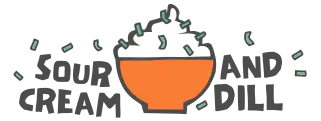Autumn has landed earlier in Tallinn, so to arrive at Heldeke in the evening means warming up a bit after a cold walk around the beautiful streets of Kalamaja. Sometimes almost literally: most of the shows I’ve seen required lots of hard work from the comedians to make the public get in the laughing wheel. It happened to André de Freitas with his show ‘Made in Portugal’ on both occasions I saw him, but that gave him a perfect opportunity to shine with his outstanding set of comedic skills. Maybe too straight-forward for Estonian audiences at times, André has a fantastic way to interact and improvise with the people.

He throws a seed at the beginning of the show, joking with someone in the first row, and we find a gorgeous garden by the end of it. Timings are vital in comedy and André knows them, because his jokes have a scrupulous tempo that confirm the fact that he’s very well-travelled on the world’s stages. At times his hands seem to move like Louis CK, leaving the impression André has probably studied comedy and comedians with great tenacity and as if it was his own PhD.

Made in Portugal maybe lacks the strength of a premise, something that stand-ups performing at Fringe shows around the world seem to forget sometimes. These shows can be a scrapbook of funny anecdotes, instead of a consistent show with its own narrative arc. Some audiences miss to see what’s the main point of the show. But that can also be good sometimes: seeing André’s show twice I noticed how he heavily varied the structure of the performance and not one single laughter was missing after the variations. He can start from the end or finish with the beginning because his approach to the laughter is intuitive: his anecdotes around the world —from his life in London to his childhood in Portugal— are tools for his final goal: to make the audience laugh the hardest. He surfs the waves of laughter throughout the whole show and won’t get off the board until he hits the biggest wave.

Ironically, André doesn’t seem to see how well he swims in the silences. He’s probably convinced that silences are bad, but with an Estonian audience I wouldn’t agree so. Yes, there are always classic ‘smilers’ in these audiences, who may enjoy the show very much but won’t express it as openly… but those silences, in his show, and the way he manages them, are almost a jewel. You can tell he’s present, upset at himself or at the audience, but he’s still there trying to revert the situation. He can start with a very low-energy audience and make them crack by the end of the show, which is much more valuable than succeeding from the beginning with an easy audience. André can literally change the mood of a room within an hour with his family and relationship anecdotes, with his improvised interactions with the audience. And that’s a priceless talent.

It’s true that some of his content is probably not very welcome because of its perspectives. It’s not about being ‘woke’ but that some of them sound very old-fashioned in a world where some issues have been deconstructed thousands of times before. Comedy should always be the irreverent standard that shocks us in a more open way to see the world, not the opposite. Maybe by now his audience’s niche is more of a young and male orientated, but surely with André’s wit and talent, it’ll broaden up in no time.
Subscribe to our email newsletter to get the latest posts delivered right to your email.


